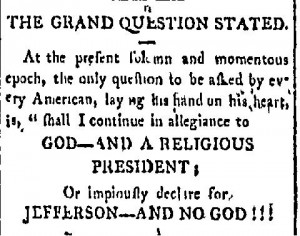Given this natural condition of uncertainty in the meaning of words, and their critical role in communication, to say the least, we can certainly expect that as we move away from the sciences towards other areas of human endeavor we have even greater vagueness in trying to express complex ideas. Politics is an easy example. America’s current American president is a babbling bullshitter, to use the explanatory framework of the essay, On Bullshit, and he is easy to characterize as an idiot, like when he conflates Western liberalism with something going on exclusively in modern California.
In this particular case, we have to track down what “liberal” means and meant at various times, then try to suss out how that meaning is working today. At one time, the term was simply expressive of freedom with minimal government interference. Libertarians still carry a version of that meaning forward, but liberalism also came to mean something akin to a political focus on government spending to right perceived economic and social disparities (to achieve “freedom from want and despair,” via FDR). And then it began to be used as a pejorative related to that same focus.
As linguist John McWhorter points out, abstract ideas—and perhaps especially political ones—are so freighted with their pragmatic and historical background that the best we can say is that we are actively working out what a given term means. McWhorter suggests that older terms like “socialist” are impossible to put to work effectively; a newer term like “progressive” is more desirable because it carries less baggage.
An even stronger case is made by George Lakoff where he claims central metaphors that look something like Freudian abstractions govern political perspectives.… Read the rest







 A pervasive commitment to ambiguity. That’s the most compelling sentence I can think of to describe the best epistemological stance concerning the modern world. We have, at best, some fairly well-established local systems that are reliable. We have consistency that may, admittedly, only pertain to some local system that is relatively smooth or has a modicum of support for the most general hypotheses that we can generate.
A pervasive commitment to ambiguity. That’s the most compelling sentence I can think of to describe the best epistemological stance concerning the modern world. We have, at best, some fairly well-established local systems that are reliable. We have consistency that may, admittedly, only pertain to some local system that is relatively smooth or has a modicum of support for the most general hypotheses that we can generate.